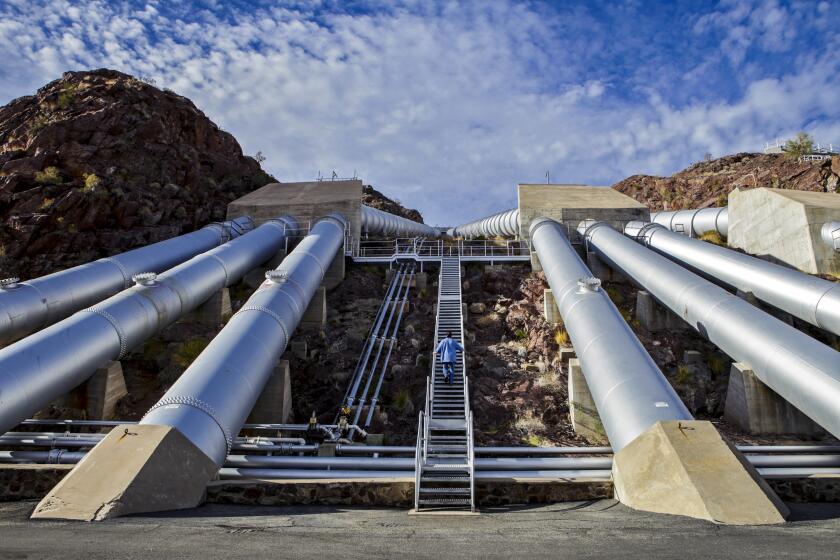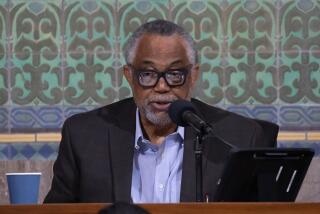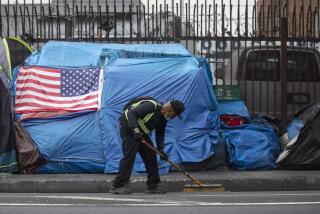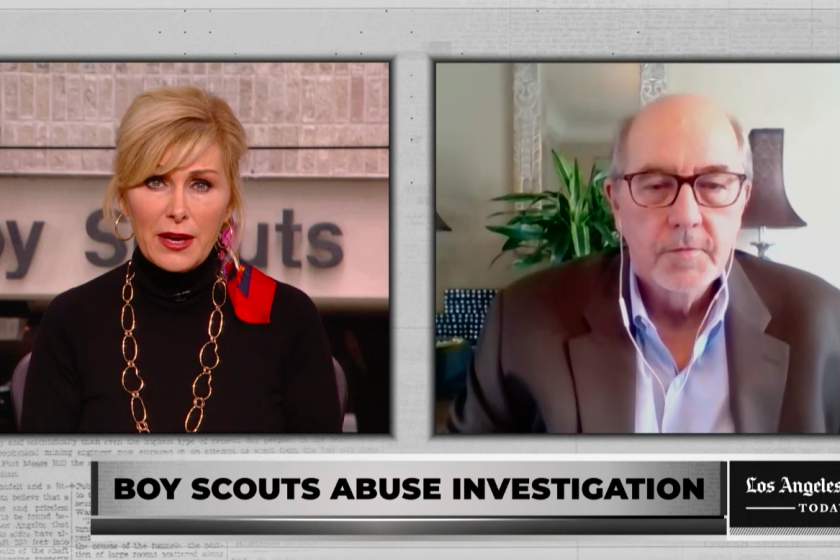Racial discrimination. Sex harassment. Retaliation. Inside So Cal’s powerful water agency
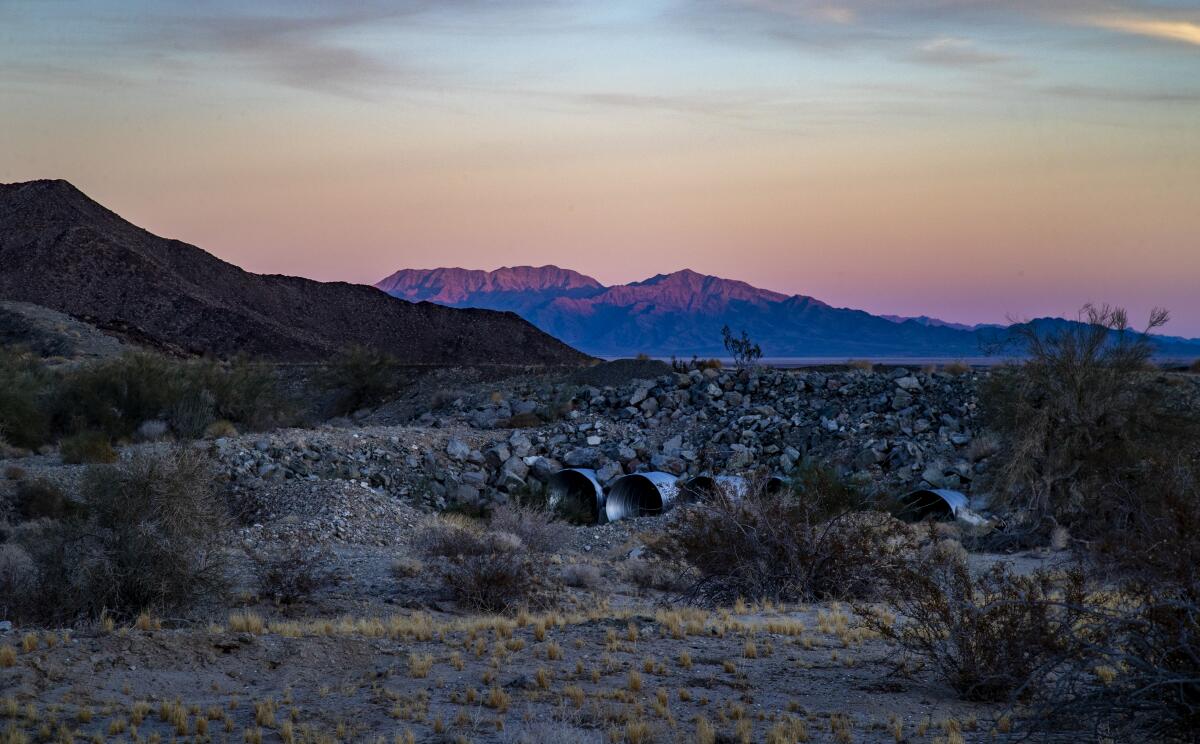
A powerful agency that is a vital source of water for millions of Californians has left its employees exposed to harassment, engaged in unfair hiring practices and allowed employee housing in blistering desert outposts to deteriorate, a state audit found.
Auditors launched their review after a Times investigation last year found a pattern of complaints alleging harassment and bullying of women at the Metropolitan Water District of Southern California, which operates the sprawling 242-mile Colorado River Aqueduct system that delivers drinking water to households and businesses in Southern California.
The Times story sparked outrage from public officials across the region who called for accountability from the agency and its leadership. At one point, Nury Martinez, president of the Los Angeles City Council, threatened to sever the city’s relationship with the MWD if the agency ignored complaints of harassment.
‘They thought I was so low’: Women say they were harassed, bullied, ignored at powerful water agency
In interviews with current and former staffers and reviews of district records, court documents and audio recordings, The Times found a pattern of complaints alleging harassment and bullying of women at the Metropolitan Water District.
In their scathing report released Thursday, auditors wrote that, despite its “critical mission,” MWD has for years failed to commit resources to properly investigating complaints of misconduct, tackling its desert housing problem or complying with state ethics laws, and has “shown an unwillingness” to correct the issues or “embrace transparency and accountability more generally.”
They also said the agency’s “actions demonstrate a failure of leadership and create a perception, at a minimum, that it tolerates harassment, discrimination, and retaliation.”
In statements to The Times, MWD Chairwoman Gloria Gray and general manager Adel Hagekhalil said the agency was committed to implementing reforms.
Donald Nash ran the pumping plants and pipelines that deliver much of Southern California’s drinking water — and exerted a tyrannical presence
“We are working swiftly and diligently to address all of the deficiencies identified in the State Auditor’s report,” Hagekhalil said.
MWD officials also pointed to a series of steps they’ve taken to address the audit’s findings, including hiring an outside law firm to help rewrite the agency’s policies on retaliation and abusive conduct, as well as plans to hire additional equal employment opportunity (EEO) staff.
Ellen Mackey, chairwoman of the employee union’s women’s caucus whose members have filed several complaints of retaliation, said in a statement that those who first came forward publicly have been “completely vindicated” by the audit.
“Relentless interference by [the general counsel’s office] and management is now documented by the audit. Retaliation is MWD’s go-to reaction, especially against whistleblowers, they can’t restrain themselves,” Mackey said. “Ratepayers need to know that this rogue agency has misspent the agency’s hard-earned dollars on investigations, NDAs, etc., all to control and keep MWD underneath the radar. We want to ensure that MWD is now under the microscope.”
The audit comes after a Times investigation that revealed a pattern of complaints from women who enrolled in the district’s trades apprenticeship program.
Among the more serious findings, auditors found that investigators at times took more than a year to conclude investigations of EEO complaints, even though its own guidelines say they should be completed in two or three months. They found several complaints that “MWD either never investigated or only did so after significant delays,” the report said.
“Addressing some EEO complaints has taken MWD much longer than it should by any reasonable metric,” auditors wrote.
In one retaliation case, auditors discovered that the subject of a complaint made attempts to “sabotage” the work of the complainant as the investigation dragged on for eight months, which “potentially put the physical safety of other employees at risk.”
Auditors wrote that other employees who filed complaints were also subject to retaliation, while MWD neglected to protect them. In another case, a complainant’s co-workers contacted MWD’s manager of human resources and demanded the employee be moved from the group, an act of retaliation that MWD appeared to ignore, according to the report.
In another instance, MWD substantiated a report of sexual harassment and promised that the employee would not have to work with the harasser again. Several years later, the employee who made the complaint was directed to work with the harasser in a “one-on-one” setting. The employee informed a manager of the situation, who still insisted they work together.
Rather than confront these issues, the MWD has “resisted transparency” by settling complaints with non-disclosure agreements that contained “non-disparagement” clauses. Such agreements have limited employees from speaking about their experiences, according to the report.
Such non-disclosure clauses involving harassment, discrimination and other conduct are now illegal under state law, and MWD officials have signaled they are open to releasing the signatories to speak openly, the report said. Agency officials also didn’t always properly inform the board of directors about the settlements, according to the report.
The audit also found the MWD meted out harsher discipline to employees than managers who committed misconduct. In one instance, a manager’s superiors said they didn’t want to “scare him away.” They noted his importance to the agency and let him off with a warning, according to the report.
In another case, a manager found to have violated sexual harassment policy was given only a two-day suspension after superiors pushed for less severe discipline. Even then, the manager went on to retire as previously planned and never actually had to serve the suspension, the report said.
Auditors also said the agency lacked diversity in its workforce, and cited evidence of discriminatory hiring. In one case, Latinos were the majority of qualified applicants for a service worker position, but the agency instead hired four white applicants, according to the report.
Qualified Black applicants were hired at half the rate of qualified white applicants, the report said. The numbers were similar for other underrepresented groups, auditors wrote.
“MWD runs a risk that the underrepresentation of women and people of color in its workforce may be, in part, the result of unfairness in its hiring process,” they wrote.
The MWD has also failed to establish an independent ethics office capable of investigating violations of policy, including by members of the agency’s Board of Directors, according to auditors. In cases from 2017, the agency’s general counsel and former board chair interfered in ethics investigations, resulting in the head of the ethics office changing a conclusion in one of those cases, the report said. In a response included in the report, the MWD said both individuals denied the accusation.
Dangerous conditions were also allowed to fester at the isolated camps in the Mojave Desert, where employees operate and maintain the Colorado River Aqueduct in often grueling circumstances. The MWD has been slow to respond to requests to fix air conditioning units, potentially endangering those employees and their families because temperatures there can exceed 110 degrees, auditors wrote.
One employee spoke at a board meeting about 115-degree water pouring from his home tap. The employee was not given a water chiller until after going public with the allegation, despite complaining privately earlier, the report said.
Meanwhile, the agency has struggled to enact a long-term solution to its housing problem, auditors said. A $146-million plan to replace the desert camp housing won’t be completed until 2027, more than 10 years after the agency first became aware of widespread problems, the auditors wrote.
Among recommendations was legislation requiring that the MWD ensure fair hiring practices, strengthen its ethics office and prohibit interference in investigation of complaints and violations.
State Sen. Henry Stern (D-Los Angeles) last year introduced a bill to enact ethics reforms at the MWD. However, the bill was held pending the results of the state audit, a spokesman for Stern’s office previously told The Times.
More to Read
Start your day right
Sign up for Essential California for news, features and recommendations from the L.A. Times and beyond in your inbox six days a week.
You may occasionally receive promotional content from the Los Angeles Times.

